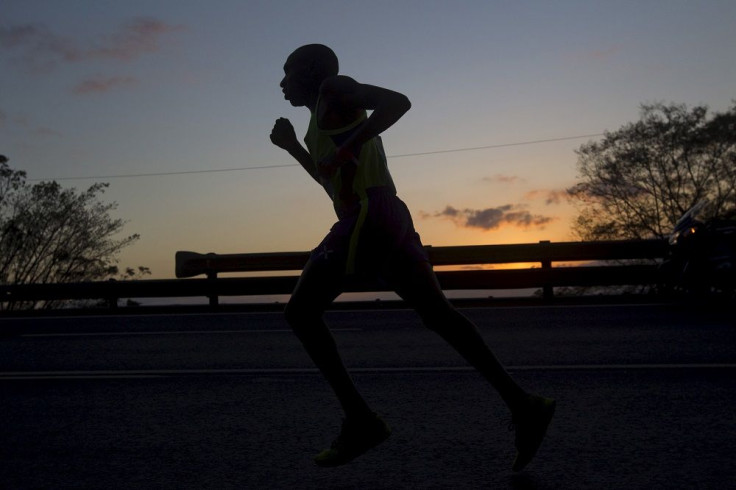Running gives certain "high," study reveals

Endorphins are not solely responsible for a “runner’s high,” or the sense of well-being, freedom and extra energy that runners often experience, claims a study at the University of Montreal Hospital Research Centre, or CRCHUM. Researchers say this particular feeling of happiness is also caused by dopamine, an important neurotransmitter for motivation.
“We discovered that the rewarding effects of endurance activity are modulated by leptin, a key hormone in metabolism. Leptin inhibits physical activity through dopamine neurons in the brain,” said Stephanie Fulton, lead author of the study and a professor at Université de Montréal's Department of Nutrition.
Leptin, which helps control the feeling of satiety or being full, is believed to influence physical activity. “The more fat there is, the more leptin there is and the less we feel like eating. Our findings now show that this hormone also plays a vital role in motivation to run, which may be related to searching for food,” shared Fulton. According to the study, leptin is critical in regulating energy balance as well as encouraging behaviours that are “rewarding” for the person's metabolism, or engaging in physical activity to find food.
Hormone signals that modulate feeding are believed to be closely linked with those of exercise. In general, mice, humans and other mammals are thought to have evolved to increase the return on effective food acquisition behaviours. Researchers said that hormones send the brain a clear message that when food is scarce, it’s fun to run to chase some down.
To prove this, the researchers studied voluntary wheel running in mice in cages. Ordinary mice were compared with mice which underwent a genetic modification to suppress a molecule activated by leptin, STAT3 or signal transducer and activator of transcription-3. This molecule is found in the neurons that synthesise dopamine in the midbrain. “Mice that do not have the STAT3 molecule in the dopaminergic neurons run substantially more. Conversely, normal mice are less active because leptin then activates STAT3 in the dopamine neurons, signalling that energy reserves in the body are sufficient and that there is no need to get active and go looking for food,” explained Maria Fernanda Fernandes, co-author of the study.
In a similar fashion, leptin is also important for motivation to be active in humans. “Previous studies have clearly shown a correlation between leptin and marathon run times. The lower leptin levels are, the better the performance. Our study on mice suggests that this molecule is also involved in the rewarding effects experienced when we do physical exercise. We speculate that for humans, low leptin levels increase motivation to exercise and make it easier to get a runner's high,” said Fulton. The study is published in the journal Cell Metabolism.
Contact the writer at feedback@ibtimes.com.au or tell us what you think below.






